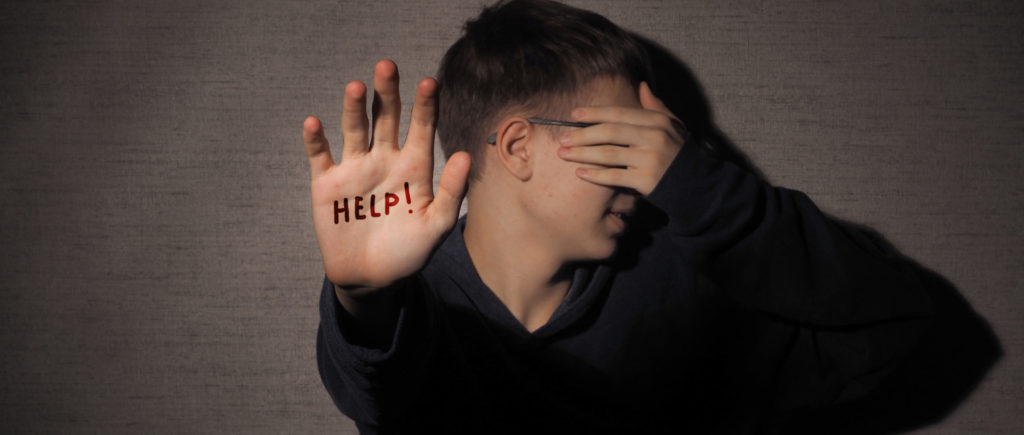
Covert Abuse
The Impact of Hidden Intimate Partner Violence
Table of Contents
Every day, millions of American women and men find themselves involved in abusive romantic relationships. Experts refer to this kind of abuse as intimate partner violence, or IPV.
Sometimes, the signs of IPV are obvious. However, they often stay covert or hidden from view unless you look closely.
There is a known link between intimate partner violence and increased risks for mental health problems. This is true whether that violence is obvious or covert.
Fortunately, with help, you can recover from the mental effects of IPV. This help often comes in the form of professional treatment. Survivors of IPV can also benefit from other recovery resources, including specialized support groups.
What Is Intimate Partner Violence

Intimate partner violence is an umbrella term that refers to any kind abusive or excessively and aggressive behavior within a relationship. In some cases, this behavior involves acts of physical or sexual violence.
However, the definition for IPV also includes two other kinds of behaviors:
- Verbal or non-verbal psychological aggression
- The pattern of unwanted, oppressive surveillance known as stalking
The single most common form of IPV is psychological aggression. Roughly 43 million American women will experience this kind of aggression at some point in their lives. The same holds true for about 38 million American men.
Roughly 25% of women experience stalking, sexual violence and/or physical violence. About 10% of men experience these types of IPV.
What Is Covert Abuse
Covert abuse is IPV that is subtle enough to avoid easy detection. This means that it tends to involve methods other than outright violence.
People who are abused covertly may show no outward signs of anything happening. Nevertheless, they suffer in a variety of ways.
Types of Covert Abuse
There is no single measure of what qualifies as covert abuse. However, researchers and public health experts have developed tools that help uncover its presence.
One such tool is the Covert Violence Scale. This scale looks at five different factors that can play a role in covert abuse. These factors are:
- Invading the space of an intimate partner
- Purposefully making that partner feel insecure
- Confining an intimate partner’s activities to a traditional gender role
- Exerting control over important aspects of a partner’s everyday life
- Diminishing the importance of a partner’s opinions or relationship contributions
Each of these factors can be expressed in a number of ways. For example, your space may be invaded by such actions as:
- Tracking or disrupting your communications with other people
- Wearing you down emotionally with constant demands
- Limiting the areas you can access in your own home
- Not allowing you to speak or respond when spoken to
Actions that can create a sense of insecurity include:
- Using words, looks, gestures or a tone of voice to frighten you
- Disrespect for your basic personal rights
- Lack of regard for your feelings
- Purposefully doing things to make you feel guilty or ashamed
Examples of confinement to a traditional gender role include:
- Preventing or discouraging you from working or going to school
- Treating you in ways that a parent would treat a child
- Refusing to perform domestic tasks
Undue control over your everyday life may include things such as:
- Taking control of your finances
- Deciding your daily schedule for you
Modern technology has set the stage for some additional types of covert abuse. Examples common today include:
- Tracking a person through online resources, i.e., cyberstalking
- Altering the contents of someone’s online profiles
- Sending abusive text messages or emails
People in same-sex relationships may also be exposed to covert abuse in other ways. That includes such things as:
- Making threats to “out” your relationship against your will
- Using your sexual or gender orientation to discourage you from seeking help
Rightfully, much of the attention regarding IPV and covert abuse is focused on affected women.
However, a significant number of cases involve abused men. That is true regardless of the gender/sex of a man’s intimate partner.
Signs and Symptoms of Covert Abuse

One of the problems with covert abuse is that it can easily go unnoticed. That is true for both outside observers and people who suffer from covert IPV. Why? The methods used in this form of IPV may not match what many people think of as abuse.
Awareness of the potential signs and symptoms of covert abuse will help correct this tendency. Things you may notice as an observer include:
- Restricted access to or communication with your affected friend or loved one
- Witnessing actions or conversations that humiliate or belittle your friend or loved one
- Signs that your friend or loved one’s communications are being monitored
- A friend or loved one whose partner restricts their access to money or other resources
How can you tell if you are a victim of covert abuse? A good place to start is a tool like the Covert Violence Scale. If you are exposed to the kinds of behaviors found on that scale, odds are high that abuse is occurring.
PTSD and Covert Abuse
PTSD is the accepted shorthand for a mental illness called posttraumatic stress disorder. This life-disrupting disorder occurs in roughly 10% of all Americans at one time or another. The root cause of PTSD is exposure to some sort of traumatic event or series of events.
The list of such events includes various forms of sexual, physical and verbal violence.
There is a known connection between intimate partner violence and PTSD. That connection extends to PTSD and covert abuse. In particular, psychological aggression is one of the forms of IPV most likely to increase your risks for developing PTSD.
Forms of Treatment for Covert Abuse
Psychotherapy is the most common form of treatment for covert abuse and other kinds of IPV.
Most often, this treatment is based on something called cognitive behavioral therapy, or CBT. CBT uses multiple approaches to help you recover from intimate partner violence. Examples of these approaches include:
- Cognitive processing therapy
- Interpersonal therapy
- STAIR, or skills training in affective and interpersonal regulation
Cognitive processing therapy helps you develop thought patterns that support your sense of well-being. Interpersonal therapy helps you recover from communication problems triggered by IPV.
STAIR helps you gain control over the ways you experience and express your emotions.
You may also benefit from something called EMDR, or eye movement desensitization reprocessing. This treatment gets its name from a series of specific eye movements you perform under guidance from a therapist.
It uses a total of eight steps to help you grow less sensitive to the sources of emotional and physical distress.
Medication may also play a part in your recovery from covert abuse. This is true if you suffer from feelings of depression. It is also true if you suffer from high levels of anxiety. Types of medications used for people affected by IPV include:
- Anxiolytics, i.e., anti-anxiety meds
- Antidepressants
- Hypnotics, i.e., sedatives or sleeping pills
Treatment for Covert Abuse and PTSD
The therapies and medications used to treat IPV are the same as those used for people with PTSD. This means that treatments for covert abuse and PTSD are largely identical. That makes sense since:
- Covert abuse and other forms of IPV qualify as traumatic experiences
- Traumatic experiences underlie the development of PTSD
Support Groups and Other Resources

It is also common for support groups and other resources to play a role in recovery from covert abuse. Participation in a support group can help you in a variety of ways. Reported benefits for abuse survivors include such things as:
- An improved ability to cope with what happened to you
- Increased feelings of self- esteem
- Reduced stress levels
- A greater sense of rightful connection to others
- Improved belief in your ability to control your own life
Today it is common to find support groups and other recovery tools that focus on specific parts of the population. This means that you can join groups that match such things as your:
- Racial/ethnic background
- Sexual or gender orientation
- First or preferred language
You do not have to join such a group in order to gain the benefits of a supportive environment. However, you may find that you prefer this more focused approach.
Recovery From Abusive Relationships at Emerald Isle
Covert abuse is a form of intimate partner violence. Many people face this kind of non-physical IPV every day. Unfortunately, it often goes undetected. That is true because of the relatively subtle outward appearance of this form of abuse.
But rest assured, cover abuse can lead to serious problems. That includes diagnosable mental health issues like PTSD.
But with help, recovery from abusive relationships is a realistic possibility. Treatment for covert abuse and IPV typically involves some kind of psychotherapy. It may also include certain kinds of medications.
In addition, support groups may play a major part in an effective recovery.
Need more information on the effects of covert abuse? Just call the professionals at Emerald Isle today. We will provide you with further details on how overt and covert IPV can damage your health and well-being.
Emerald Isle also specializes in the treatment of trauma-related conditions. Our customized care plans will help you overcome these conditions and restore your sense of personal wellness.








